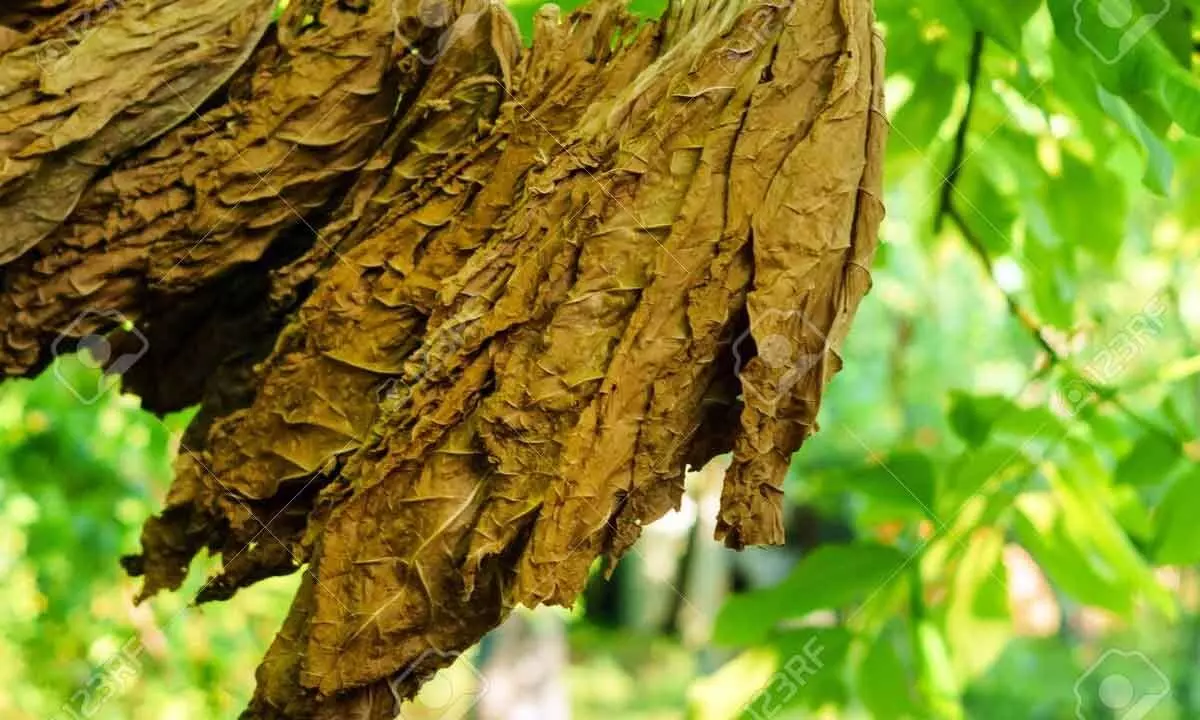Live
- Over 397 crore women availed free travel scheme till date, claims K’taka govt
- Maha Open ATP Challenger: India's Jeevan/Prashanth bag doubles crown
- Maha Kumbh: BJP president JP Nadda, CM Adityanath take sacred dip at Sangam
- Charges filed against IED maker in NIA Patna court
- Return of looted arms, ammunition continues in Manipur after Governor's appeal
- Delhi L-G appoints Arvinder Singh Lovely as pro-tem Speaker of new Assembly
- Former RBI Governor Shaktikanta Das appointed top aide to PM Modi
- Using modern tools to increase revenue & improve tax collections: Tripura CM
- Aadar Jain and Alekha Advani’s Wedding: Bollywood Celebrities Dazzle in Traditional Attire
- Gaurav Gupta’s Dubai-Inspired Couture
Just In
‘Too early to say’, Docs on tobacco leaf derivative shown to treat cancer

A team of scientists from Allahabad University as well as from the University of Malaysia identified treatment of various cancers through a single anti-cancer compound -- 4-[3-Hydroxyanilino]-6, 7-Dimethoxyquinazoline -- found in tobacco leaves
New Delhi: Even as a study claimed that a compound derived from tobacco leaves can help fight cancer, doctors on Tuesday said “it’s too early” to conclude that and warrants more research.
In a recent study, a team of scientists from Allahabad University as well as from the University of Malaysia identified treatment of various cancers through a single anti-cancer compound -- 4-[3-Hydroxyanilino]-6,7-Dimethoxyquinazoline -- found in tobacco leaves.
Their findings, forthcoming in the Journal of Biomolecular Structure and Dynamics, showed the organic compound has anti-cancer properties. It can be taken as a lead compound for future clinical trials and experiments for treating cancers including those of the lungs, pancreas, bone marrow and blood, the team said.
The anti-cancer compound derivative from tobacco leaves that showed activity against cancer cells “has been shown before as well but so far no large studies have been conducted to prove that this is possible against all cancer types,” Yogesh Kumar Nishchal, Senior Consultant - Medical Oncology, Fortis Hospital, Noida, told IANS.
“The previous study in the late ‘90s did show activity against cancer cells but that was also dependent on various other factors. This did not show exclusively (on its own) to be active against cancer cells. This will need further trials to prove its efficacy exclusively against different cancer types,” he added.
The study showed that the 4-[3-Hydroxyanilino]-6,7-Dimethoxyquinazoline compound can inhibit the activities of the EGFR cancer target. EGFR or epidermal growth factor receptor is a protein on cells that helps them grow. A mutation in the gene for EGFR can make it grow too much, which can cause cancer.
“It has been cited that this singular compound when extracted from tobacco leaves can target EGFR protein present on walls of cancer cells. While targeting EGFR is an established pathway in cancer treatment it would be too early to say that this compound derived from tobacco can be utilised to treat different types of cancer,” Yash Mathur, Consultant, Surgical Oncology, HCG Cancer Centre, Borivali, Mumbai, told IANS.
Mathur said the compound will have “to undergo different levels of clinical trials before concluding its worth”.
Moreover, “it is also a clinically established fact that TSNA (tobacco-specific nitrosamines) have been found at levels 100 times higher than in other foods like bacon, and beer. These TSNA are known to have a significant role in carcinogenesis (cancer formation)”, Mathur said.
The research comes as various previous studies, including the World Health Organization (WHO), has claimed that tobacco usage causes cancer.
It is established that tobacco leaves when smoked produce more than 30 types of different carcinogens that are directly responsible for cancer.
“The current study mentions a singular compound from tobacco leaves that may be helpful but this does not make tobacco leaves less harmful or sacrosanct. Hence consumption of tobacco remains harmful whether in smoked or smokeless form. Youth and the common man should not interpret the study as consumption of tobacco leaves is beneficial forhealth and as part of anti-cancer treatment,” Mathur said.

© 2025 Hyderabad Media House Limited/The Hans India. All rights reserved. Powered by hocalwire.com




